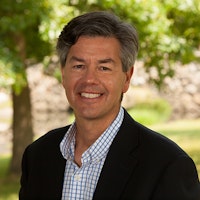Our future prosperity lies in giving up the illusion of our separateness from one another and from our environment, and instead, reconnecting the now broken parts into the true wholes of reality, unleashing untold potential and prosperity in the process.
Our future prosperity lies in giving up the illusion of our separateness from one another and from our environment, and instead, reconnecting the now broken parts into the true wholes of reality, unleashing untold potential and prosperity in the process.
John B. Fullerton

Our Future Prosperity
Topic: Global Peace & Development
“Our future prosperity lies in giving up the illusion of our separateness from one another and from our environment, and instead, reconnecting the now broken parts into the true wholes of reality, unleashing untold potential and prosperity in the process.”
John B. Fullerton was born on May 20, 1964, in Syracuse, New York, and spent his formative years in this vibrant city. He demonstrated an early interest in economics and finance, which led him to pursue undergraduate studies at the University of Michigan College of Literature, Science, and the Arts. Following his graduation, Fullerton furthered his education at the NYU Stern School of Business, where he obtained an MBA. His academic background provided a strong foundation for his subsequent roles in the financial sector, including a significant tenure as a managing director at J.P. Morgan. John Fullerton is married to Claire Fullerton, and they have two children. The family has been an integral part of his journey, both personally and professionally.
John Fullerton has been a proponent of shifting economic paradigms towards more sustainable and equitable systems throughout his career. His thought leadership is heavily influenced by the Wisdom Traditions and a regenerative understanding of the principles of Nature, advocating for economic practices rooted in truth and sustainable value. Fullerton critiques current economic models that emphasize short-term growth and efficiency, suggesting instead an "economics of permanence" that prioritizes long-term stability and durability. His ideas challenge conventional practices and encourage a reassessment of economic goals to align more closely with the principles of sustainability and justice.
In his writings and speeches, John Fullerton calls for integrating traditional wisdom into contemporary economic practices to achieve a more balanced approach to human and ecological well-being. This vision for economic reform is not just about revising old concepts for modern applications but fundamentally rethinking economic objectives to focus on truth and long-term sustainability. Through his work, Fullerton not only questions existing frameworks but also inspires discussions on how to reshape economic strategies to support a just and sustainable future for all. His efforts highlight the importance of basing our economic systems on values that promote enduring well-being and fairness.
Finding Prosperity
Fullerton, John. “Finding Prosperity.” Capital Institute, 8 May 2018, capitalinstitute.org/blog/finding-prosperity/.

John B. Fullerton
Resources
Copyright © 2017 – 2026 LuminaryQuotes.com About Us

John Fullerton, Finding Prosperity
This next great era, the integral era, will force us to shed our human arrogance (equally shared on the left and the right) that says we can manage complex systems through objective analysis without creating ever greater problems with our solutions. Of course, this is not the popular view. Instead, to borrow from Vaclav Havel, “we are looking for an objective way out of the crisis of objectivism.” Our future prosperity lies in giving up the illusion of our separateness from one another and from our environment, and instead, reconnecting the now broken parts into the true wholes of reality, unleashing untold potential and prosperity in the process. Our bodies, our ecosystems, our businesses, our economies, our societies are far more than the sum of the parts we currently use to analyze and manage them, as true for cancer research as it is for equity research. And they are far more complex than we can objectively understand, much less manage. Instead, we must learn to work with the complexity, to understand how it works, and to discern its underlying patterns and principles.
It is not, therefore, new technologies that will save us. It’s a new way to think!
With more integrated, “integral” thinking, we will learn to see our economies through these universal patterns and principles. In the process, we will learn to unlock previously unseen potential, consistent with our true reality of abundance if we only had eyes to see it.
–John Fullerton [Finding Prosperity].